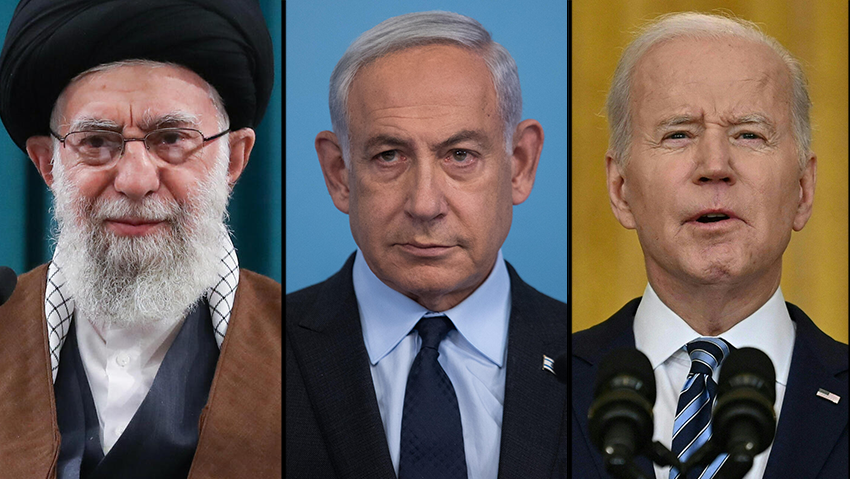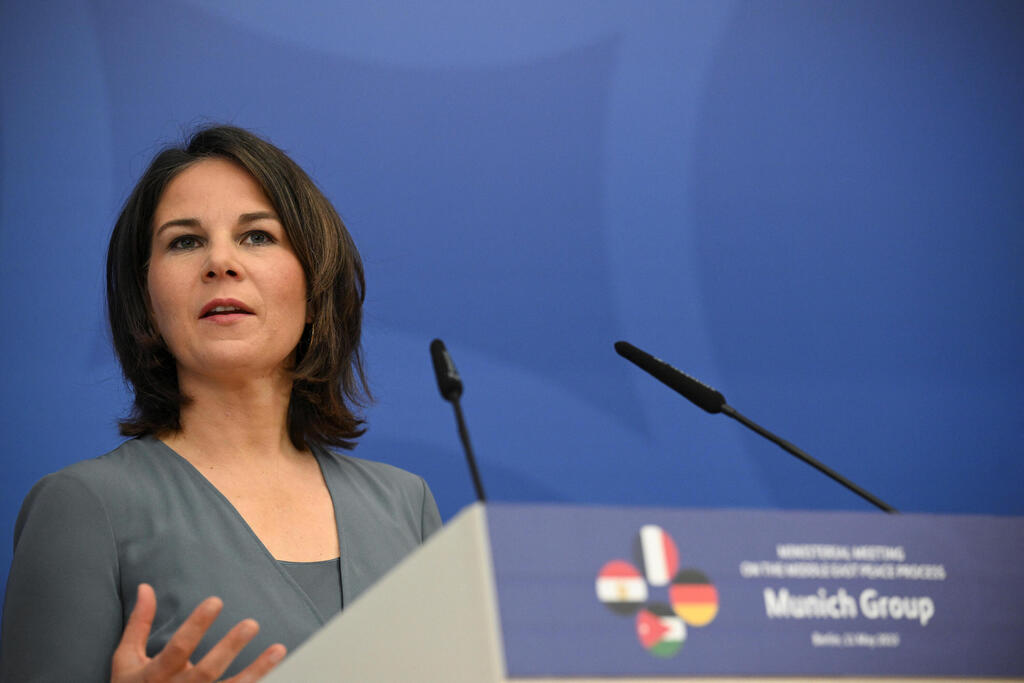Israel has decided to respond to the unprecedented Iranian attack against it, but behind-the-scenes discussions continue on how and when to launch the counterstrike. Over time, there's growing debate among some circles about the advisability of a retaliatory attack. The defense establishment's stance in these discussions remains unchanged, insisting that the Iranian attack necessitates a response.
Meanwhile, international pressure on Israel is mounting to refrain from attacking Iran and risk losing the broad support of the international coalition. The Iranian attack was thwarted with the assistance of the U.S., the UK, France, Jordan and other countries.
2 View gallery


Iranian Supreme Leader Ayatollah Ali Khamenei, Prime Minister Benjamin Netanyahu and US President Joe Biden
(Photo: EPA, Alex Kolomoisky, AFP)
An Israeli official stated on Tuesday "Israel is determined to respond to the attack but also aims to avoid war and not undermine the extensive international support that has been lacking in recent months."
Contrary to expectations, Prime Minister Benjamin Netanyahu did not convene the War Cabinet on Tuesday, which had met several times before and after the Iranian attack. However, there were discussions in other forums behind the scenes.
Tuesday night, Netanyahu spoke with British Prime Minister Rishi Sunak, who urged him not to attack Iran.
U.S. Secretary of State Antony Blinken held discussions with War Cabinet Minister Benny Gantz and Qatari Prime Minister Mohammed Al Thani. The State Department reiterated Washington's stance that the U.S. seeks to avoid escalation following President Joe Biden's conversation with Netanyahu, in which Biden emphasized that the successful interception of hundreds of missiles and drones was a victory in itself.
Amid pressure on Israel to refrain from striking back, German Foreign Minister Annalena Baerbock and British Foreign Secretary David Cameron are scheduled for a brief visit to the country. Although planned before the Iranian attack, their visit is expected to include discussions on the incident and attempts to persuade Israel against retaliating.
Baerbock expressed hopes that the European Union would swiftly expand sanctions against Iran due to the attack. She noted a European desire to "quickly expand" sanctions on the Iranian regime.
A political source said that the EU sees an opportunity to "ride the current wave" and use the situation to impose sanctions that could also benefit Ukraine, which is dealing with Iranian-supplied drones in its conflict with Russia.



